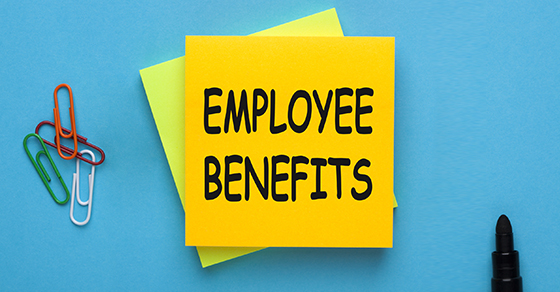As an employer sponsoring a retirement plan, it’s essential to maintain accurate records to comply with legal requirements and ensure smooth plan administration. Let’s dive into the key aspects of maintaining and retaining retirement plan records.
Why Maintain Retirement Plan Records?
Maintaining accurate and up-to-date retirement plan records is essential for several reasons:
- Compliance with Legal Requirements: The Internal Revenue Service (IRS) and Department of Labor (DOL) have specific requirements for record retention related to retirement plans. Failure to comply can result in penalties and fines.
- Financial Planning: These records provide a clear picture of your retirement savings progress, helping you make informed decisions about your financial future.
- Dispute Resolution: In case of any discrepancies or disputes with the plan provider, detailed records can provide necessary evidence.
- Audit Ready: This is the main reason for retaining plan documents. Audits require a ton of documentation to prove the plan has been responsibly managed and kept in compliance. Most of the documents you are required to retain are those you’ll need to supply for an audit.
ERISA Guidelines and Requirements
The Employee Retirement Income Security Act (ERISA) sets minimum standards for retirement plans in private industry. Here are some key ERISA guidelines for record maintenance:
- Plan Documents: ERISA requires plan administrators to maintain and provide participants with Summary Plan Descriptions (SPDs) and plan documents upon request.
- Fiduciary Responsibilities: Plan fiduciaries must act prudently and solely in the interest of the plan’s participants and beneficiaries. All decisions and actions taken by fiduciaries should be documented and retained.
- Reporting and Disclosure: ERISA requires the filing of annual reports (Form 5500) with the federal government. It provides transparency about the plan’s financial conditions and operations to the government and plan participants.
- Record Retention: Section 107 of ERISA states that plan administrators must keep plan records for at least six years after filing ERISA returns or reports. However, some records should be kept indefinitely.
- Accessibility: Whether in paper or electronic format, records must be readily retrievable. If using electronic media, the recordkeeping system must meet certain standards:
- Ensure the integrity, accuracy, authenticity, and reliability of electronic records.
- Maintain records in reasonable order and in a safe, accessible place.
- Must be able to convert electronic records into legible paper copies when needed for reporting and disclosure requirements.
What Records Should You Keep and for How Long?
ERISA Section 107 requires that for fiduciary plan documents, contracts and agreements, participant notices, and compliance documents, you are required to keep records for “at least six years from the date the report was filed.”
Participant-level benefit determinations are slightly different. These should be kept “until the plan has paid all benefits and enough time has passed that the plan won’t be audited.”
Here are some of the key documents to retain:
- Plan Documents: No legal documents related to the plan should ever be destroyed. This includes the original signed and dated plan adoption agreement, annuity contracts, plan amendments, and restatements. For example, if you have a 401(k) plan, keep the original signed and dated 401(k) adoption agreement.
- Plan Benefit Records: ERISA requires every employer to maintain records necessary to determine benefits due or that may become due to each employee for as long as the possibility exists that they might be relevant to determining the benefit entitlements of a participant or beneficiary. These records include eligibility records, time cards and any records related to distributions and should be retained indefinitely.
- Financial Statements: Keep all annual financial statements and auditor’s reports if the plan is subject to an audit.
- Participant Records: Preservation of plan records is important not only from the standpoint of complying with ERISA record retention rules, but also because the IRS has been known to request records from employers that go back 10 years or more in the case of a plan termination. Deferral election forms, investment forms, beneficiary forms, and any Qualified Domestic Relations Orders (QDROs) should be kept indefinitely in the participant’s personnel files as well as records of each participant’s account balance and their vesting status. It is also recommended that a file be kept that contains copies of any notices that were given to employees.
- Fiduciary Records: Plan fiduciary records should be retained indefinitely. Retain all records of decisions made by plan fiduciaries, including investment decisions, selection of service providers, and plan committee meeting notes. For instance, if you change the plan’s investment options, you should document the decision-making process and retain those records.
- Form 5500 and Supporting Information: Form 5500 and records that verify or explain information on the Form 5500 should be kept for at least six years after the filing date of the Form. These include worksheets, receipts, checks, invoices, bank statements, ledgers, contracts, and evidence of the plan’s fidelity bond.
Best Practices for Record Maintenance
- Organize Your Records: Keep the records in a systematic manner, making it easier to locate specific documents when needed.
- Secure Storage: Protect the records from physical damage and unauthorized access. Consider using secure digital storage solutions.
- Regular Updates: Update the records regularly to reflect any changes in the retirement plan or personal circumstances.
- Professional Guidance: Consider seeking help from financial advisors or retirement plan consultants to ensure you are meeting all legal requirements.
Maintaining and retaining retirement plan records might seem like a daunting task, but it’s a vital part of ensuring smooth plan administration and complying with requirements.

